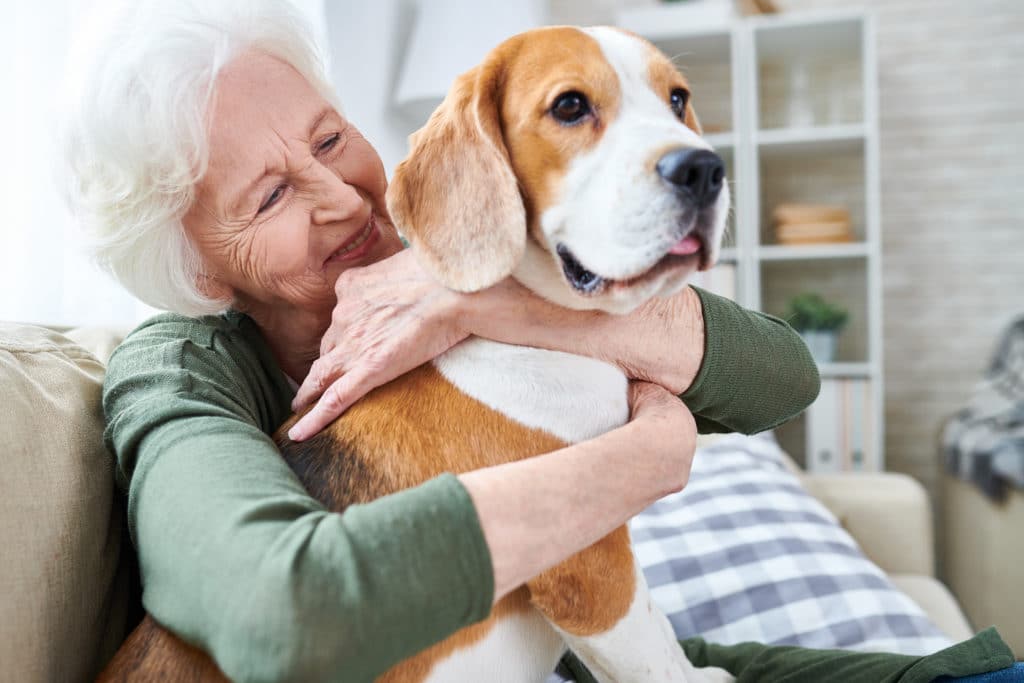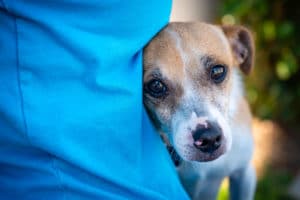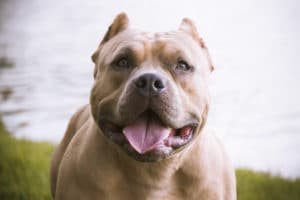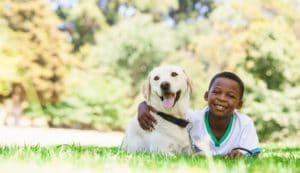Recently, we covered the story of Dennis the dieting dachshund, a tiny 12 year-old dog who weighed in at an incredible 56 pounds — or about 25 kilograms. Fortunately, his family did the right thing and, with proper diet and exercise, he managed to trim down until his weight matched his age. He was clearly much happier and much healthier.
The story of Dennis is, sadly, not unique. According to the Association for Pet Obesity Prevention, 52.7 percent of dogs are overweight or obese. Just like with humans, excess weight in dogs can lead to all kinds of health problems — canine diabetes, heart disease, joint pain, and many other issues.
As Pack Leaders, it’s our job to provide dogs with protection and direction, and nowhere is that more important than in giving them exercise and making sure that they don’t overeat — and if there’s one thing that a dog will do (unless they have a couple of serious health conditions) it’s eat. And eat and eat and eat. They can’t help it. It’s instinctual.
In the wild, a pack of dogs may not eat every day. They only eat when they have a successful hunt. This behavior is hardwired, so even a pampered household pet can be in a “feast or famine” mindset. If you keep putting food in front of them, they’ll eat it, whether they’re hungry or not.
Food quality matters
Humans can make the problem worse by feeding dogs the wrong kind of food, especially when we decide to share our human food with them. Humans like things that are tasty, and to humans “tasty” tends to mean sugar, fat, or spices. Unfortunately, dogs find these things tasty, too, and if they get used to them, they’ll chow them down.
Wild dogs don’t run into sugar and spice at all since they don’t make it a habit to eat fruit, which would be the only natural source of the former, and tend to avoid spices because those are a plant’s specific way of telling birds and animals, “Don’t eat me!”
And, to those wild dogs, fat is just the stuff they have to dig through in an animal they’ve killed to get to all the good muscle and organs inside. That sounds gross, I know — but to a dog, that is their paleo diet: the insides of dead, raw animals.
Now I’m not saying that you have to kill a goat and slice it up raw in order for your dog to eat healthy. What I am saying is that dogs were not designed to eat human food, and not designed to eat three meals a day, every day, like we do. But when we use food to give them affection, we run the risk of making them overweight or obese.
Let’s put Dennis into a human perspective. His top weight was more than four and a half times his ideal weight. This would be like a 6 foot tall man tipping the scales at well over 800 pounds.
How to tell if your dog is overweight
So, what’s the best way to determine whether a human or a dog is overweight? It’s as close as the waistline, and you can tell whether your dog is overweight just by looking down. Ideally, your dog should narrow just a little bit at the waist, in a slight hourglass shape, or at least have a shape that’s straight down the sides in a slight “V” from shoulders to hips. If, instead, your dog looks like an oval or you can see their stomach sagging from the side, then you might want to consider a change in diet and increase of exercise.
And, as always, the best way to find out whether your dog is at their ideal weight is to fulfill the protection part of being a Pack Leader by consulting your vet. After all, it’s easy to help our dogs diet — they can’t work the can opener or open the fridge, so what they eat depends on us. If you love them, you can show it best not by over-feeding them, but by giving them plenty of exercise and making sure that they don’t become part of that overweight dog statistic.
They’ll live longer, happier lives, and will thank you for it every day.
Stay calm, and keep your dogs healthy!
Get Cesar’s newsletters in your inbox. Subscribe now.











